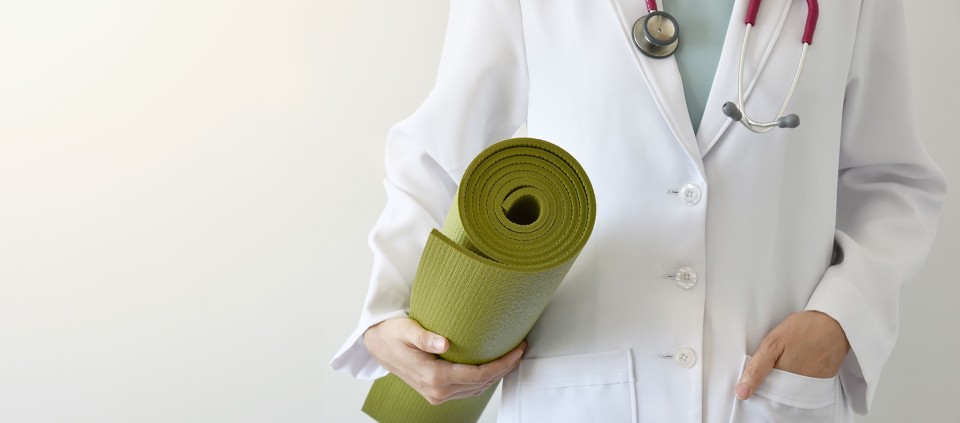Could Mindfulness Be the Cure for Burnout Among Healthcare Providers?

by Reyna Eisenstark
I had a dentist once who explained to me that being a dentist was one of the most stressful jobs you could have. I thought about what it would be like to work with people every single day who were mostly terrified of you. But my dentist explained that that wasn’t even the worst of it. “You see where I’m standing?” he said, moving a few feet away from me. “Most people’s personal space is here. Now look at where I work all day,” he said, putting his face just a few inches from mine.
“Wow,” I said, “that must make patients even more stressed.”
“It’s stressful for me,” he pointed out. “My personal space is constantly being invaded.”
This was a revelation to me, but when I thought about it more it made total sense: Healthcare professionals, who spend their days dealing with the stresses of their patients, have their own stresses that are often overlooked.
Lisa B. Nelson, MD, Director of Medical Education for Kripalu Programs and a family practice physician, sees this all the time. She points out that the medical field has always has been challenging, which everyone knows going into it. But the promise is that the rewards will be correspondingly high. These days, however, healthcare professionals spend so much time interfacing with computers that they end up making less eye contact and building fewer satisfying relationships with patients. This can lead to a kind of disconnect, which can ultimately result in burnout.
Lisa is on faculty for the RISE program for healthcare professionals, an iteration of Kripalu’s evidence-based program for mindful stress-resilience that specifically addresses the challenges that healthcare professionals face. RISE gives them mindfulness tools to help manage burnout, improve personal health, and enhance patient care. And of course, there's the additional benefit of being able to share these approaches with their patients.
The RISE program is based in Kripalu’s 40 years of developing yoga education, as well as more than a decade of research, including studies with healthcare providers. In the summer of 2018, a small pilot study brought the RISE program to doctors from two different departments at Brigham and Women’s Hospital in Boston: perinatal medicine and OB/GYN. (These, along with emergency medicine and anesthesiology, tend to be high burnout areas in the healthcare profession.) Jeffery Dusek, a research consultant for Kripalu, was part of the team of consultants that evaluated the results of the study, which initially involved 19 doctors. A RISE facilitator came to the hospital and met with the doctors for an hour-long session once a week for six consecutive weeks. There was a follow-up questionnaire six weeks later, and then a two-month follow-up in the fall.
This simpler workplace program was obviously much less comprehensive than a complete three- or five-day program at Kripalu, but even so, the researchers were surprised by the results. The questionnaires before and after the program asked the participants about issues such as perceived stress, resilience, anxiety, sleep disturbance, professional fulfillment, work exhaustion, and burnout. The findings showed that, after the six-week program, mindfulness among the participants improved and continued to improve. Perceived stress dropped, and resilience went up and stayed up. Burnout went down and kept going down with each follow-up.
As Jeffery explains, “I didn’t think a six-hour yoga-based program would have this much impact. We were really just testing the waters to see how the program might work. But the study made me feel there was a real value to bringing these interventions to the workplace.”
The primary goal of the study was to get the participants to bring mindfulness practice home with them; research has shown that home practice has a much bigger impact because it becomes a part of your daily life. Jeffery explains that in today’s society, there’s a connection to being productive: “Sitting and meditating and doing yoga might seem like you’re not doing anything, but you might actually be getting more done: you’re not as reactive or distracted.” The point of mindfulness is not to be reacting constantly but pausing and letting things pass.
Lisa expresses hope that the people who participate in RISE will take away from the program the understanding that it is something they can do every day to change their moment-to-moment experience: “This is concrete, simple, and actionable.”
Find out more about RISE for Healthcare Professionals.
Reyna Eisenstark is a freelance writer living in Chatham, New York.
© Kripalu Center for Yoga & Health. All rights reserved. To request permission to reprint, please email editor@kripalu.org.